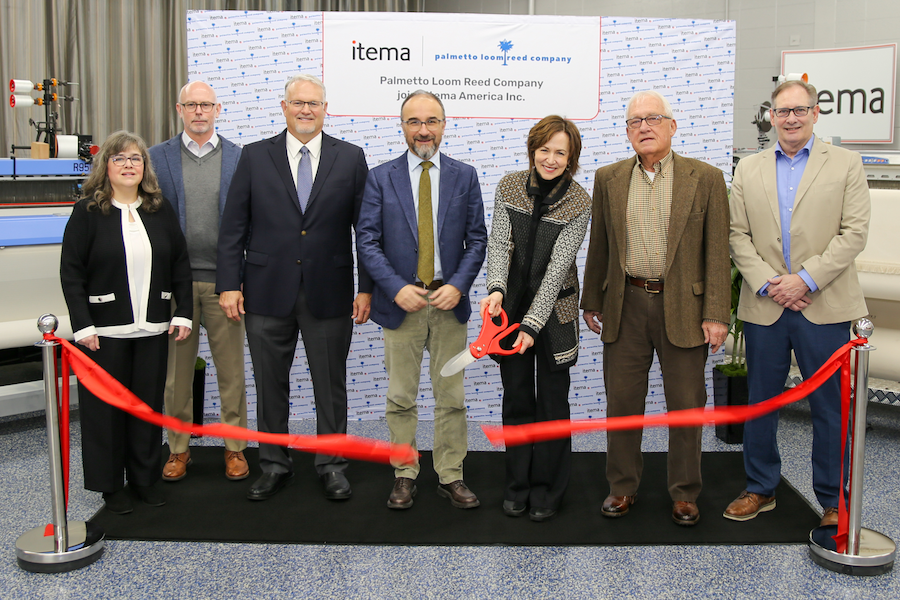#Europe
Commission sets out key priorities in the European Semester for the year ahead to strengthen EU competitiveness
The EU is facing a number of important structural challenges, including low productivity growth, the green and digital transitions, ageing and social inclusion, that need to be tackled in order to stay on the path of sustainable competitiveness. Disruptive geopolitical events have also demonstrated the need for the EU to remain competitive in a global market, while ensuring that no one is left behind.
Economic policy coordination through the European Semester will help Member States achieve these objectives by setting priorities and providing clear and well-coordinated policy guidance for the coming year.
Annual Sustainable Growth Survey
This year's Annual Sustainable Growth Survey puts forward an ambitious agenda to further strengthen a coordinated EU policy response to enhance the EU's competitiveness through a green and digital transition, while ensuring social fairness and territorial cohesion.
The four priorities under the European Semester remain: promoting environmental sustainability, productivity, fairness, and macroeconomic stability, with a view to fostering competitive sustainability. This approach is in line with the UN Sustainable Development Goals, which are an integral part of the European Semester.
Addressing structural and emerging challenges, to fully realise each Member State's competitiveness potential will be one of the focal points of this year's cycle. This includes removing bottlenecks to private and public investment, supporting a conducive business environment, and ensuring the development of the skills required for the green and digital transitions. In this respect, the 2024 cycle of the European Semester will specifically focus on synergies and complementarities between the implementation of the recovery and resilience plans and the Cohesion Policy programmes, and on identifying areas with further investment and reform needs at national and regional level.
Moreover, in 2024, the general escape clause of the Stability and Growth Pact is set to be deactivated. Fiscal policy needs to support monetary policy in reducing inflation and safeguarding fiscal sustainability, while providing sufficient space for additional investments and supporting long-term growth.
Opinions on the 2024 Draft Budgetary Plans of euro area Member States
The Commission assessed the consistency of the draft budgetary plans for 2024 with the fiscal Council Recommendations of July 2023.
Overall, the Commission is of the opinion that the draft budgetary plans of Cyprus, Estonia, Greece, Spain, Ireland, Slovenia and Lithuania are in line with these Council Recommendations. The draft budgetary plans of Austria, Germany, Italy, Luxembourg, Latvia, Malta, Netherlands, Portugal and Slovakia are not fully in line with the Council Recommendations. The draft budgetary plans of Belgium, Finland, France, Croatia risk not being in line with the Council Recommendations.
Recommendation for euro area economic policy for 2024
The euro area recommendation presents tailored policy advice to euro area Member States on topics that affect the functioning of the euro area as a whole. This year the focus lies on policy responses to the challenges of high inflation and competitiveness.
Euro area Member States should:
- Adopt coordinated prudent fiscal policies and wind down energy support measures, with a view to enhancing public finances' sustainability and avoiding fuelling inflationary pressures.
- Ensure high and sustained levels of public investment and promote private investment through the acceleration of the implementation of the Recovery and Resilience Facility and Cohesion Policy programmes.
- Support wage developments that mitigate the loss in workers' purchasing power, taking into account competitiveness dynamics.
- Monitor risks related to tightening financial conditions, while completing the Banking Union; and
- Enhance competitiveness by improving access to finance, progressing in the Capital Markets Union and ensuring that public support to strategic sectors remains targeted and does not create distortions in the level playing field of the Single Market.
Alert Mechanism Report
The Alert Mechanism Report (AMR) is a screening exercise to detect potential macroeconomic imbalances. It identifies Member States for which in-depth reviews are needed to assess whether they are affected by imbalances requiring policy action.
The previous round of the macroeconomic imbalance procedure concluded that Cyprus, Germany, Greece, France, Hungary, Italy, the Netherlands, Portugal, Romania, Spain and Sweden were experiencing imbalances or excessive imbalances. As a result, in-depth reviews will again be prepared for these countries in the 2023-2024 cycle.
This year's AMR concludes that in-depth reviews are warranted for an additional Member State, namely Slovakia. Slovakia had been subject to an in-depth review in the previous annual cycle, which concluded that it was not experiencing imbalances. However, economic developments since then point to a continued risk of possible imbalances as the abatement of these risks does not appear to be clearly underway.
Proposal for a Joint Employment Report
The proposal for a Joint Employment Report (JER) confirms that the EU labour market is resilient. Overall, the EU employment rate reached 74.6% in 2022. It rose further to 75.4% in the second quarter of 2023, well surpassing pre-pandemic levels. At the same time, EU unemployment decreased to a historic low in 2022 (6.2%), a trend that continued in the second quarter of 2023 (6%). Nevertheless, disparities exist across Member States, regions, and sectors.
Despite nominal wage increases, real wages in 2022 fell, to various degrees, in almost all Member States. This highlights the importance of well-balanced wage setting mechanisms, including strong social dialogue and effective collective bargaining, in line with national practices. Adequate minimum wages can help protect the purchasing power of low-wage earners and decrease in-work poverty, while sustaining demand and strengthening incentives to work. Sizeable labour and skills shortages are posing bottlenecks to economic growth. If not adequately addressed, they risk hampering the green and digital transitions.
This edition of the JER is the first to report on progress towards the 2030 EU and national employment, skills and social targets. While the EU is well on track towards its headline employment target of 78% by 2030, significant progress is still needed to reach the other two headline targets on adult learning and poverty reduction. This report also has a stronger country-specific focus in line with the principles of a Social Convergence Framework. Member States' labour market, skills and social challenges are analysed to identify potential risks to upward social convergence that require deeper analysis.
Next steps
The Commission invites the Eurogroup and the Council to discuss the 2024 Autumn Package and to endorse the guidance offered. The Commission also looks forward to engaging in a constructive dialogue with the European Parliament on the contents of this package and each subsequent step in the European Semester cycle, as well as further engagement with social partners and stakeholders.
Background
The European Semester provides a framework for coordinating economic and employment policies of the Member States. Since its introduction in 2011, it has become a well-established forum for discussing EU countries' fiscal, economic and employment policy challenges under a common annual timeline.
The Recovery and Resilience Facility is the centrepiece of NextGenerationEU, with €723.8 billion in loans and grants to support reforms and investments undertaken by EU countries. Its aim is to mitigate the economic and social impact of the coronavirus pandemic and make European economies and societies more sustainable, resilient and better prepared for the challenges and opportunities of the green and digital transitions.
So far, payments disbursed under the Recovery and Resilience Facility amount to €175 billion. Up to €150 billion in additional resources - of which up to €127 billion in loans - are expected to be committed following REPowerEU-related revisions of the plans. Under the cohesion policy funds, over €210 billion has been disbursed since the beginning of the COVID-19 pandemic. As of today, the Commission has endorsed 21 revised national recovery and resilience plans submitted by Member States, which contain REPowerEU chapters to reduce energy dependence on Russia and accelerate the green transition. The Council has already approved 13 of these revised plans and is expected to decide on the remaining ones by the end of the year.















